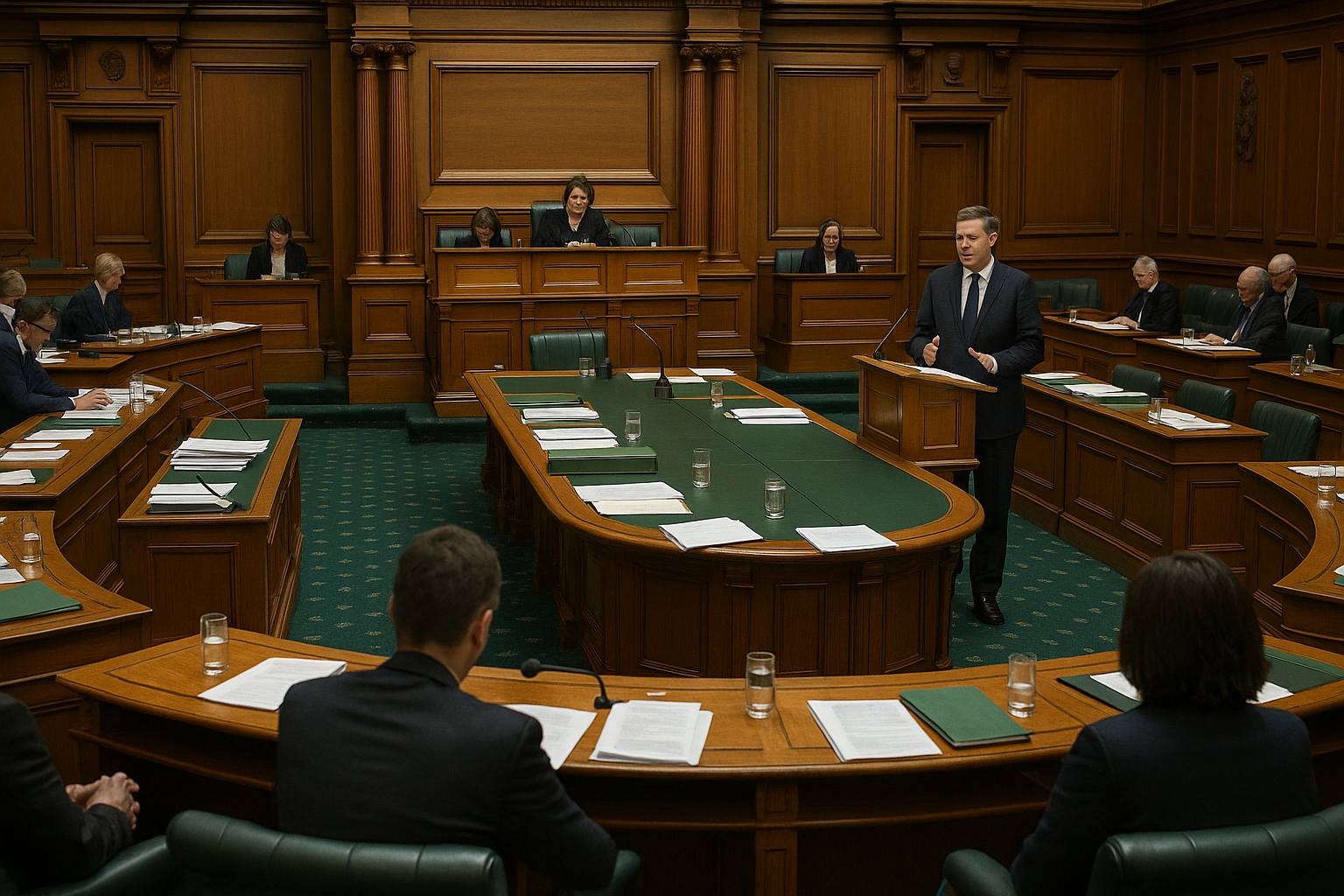NZ Government Launches Overhaul to Refocus Councils on Core Local Services
A cornerstone of the new Bill is the removal of the four 'well-beings'—social, cultural, economic, and environmental—from the statutory purpose of local government.

- Country:
- New Zealand
In a major move to overhaul the structure and priorities of local government in New Zealand, the Government has introduced the Local Government (System Improvements) Amendment Bill to Parliament. The legislation represents a key pillar of the wider System Improvements programme, unveiled by the Prime Minister in August 2024, aimed at restoring accountability, performance, and fiscal responsibility across the local government sector.
Local Government Minister Simon Watts has positioned the Bill as a firm response to public dissatisfaction with skyrocketing rates, bureaucratic expansion, and declining local infrastructure performance. “Kiwis are frustrated with rising rates, expanding bureaucracy, and poor value for money,” said Watts. “This Bill puts councils back to work on the basics, their core services, so ratepayers see real results for what they pay.”
Core Focus: From ‘Well-Beings’ to Infrastructure
A cornerstone of the new Bill is the removal of the four 'well-beings'—social, cultural, economic, and environmental—from the statutory purpose of local government. Introduced in previous governments, the well-beings framework aimed to broaden council responsibilities. However, critics argue it diverted attention from essential services and strained council resources.
Instead, the Bill redefines the purpose of local government to focus squarely on “core services,” such as:
-
Roading and transport networks
-
Three waters infrastructure (drinking water, wastewater, and stormwater)
-
Rubbish and waste management
-
Basic civic infrastructure
The changes are designed to prioritise infrastructure renewal and service delivery over what the Government describes as “mission creep” into areas better handled by central agencies or community organisations.
Strengthening Transparency and Financial Discipline
The Bill introduces a suite of measures aimed at improving financial transparency and council performance, including:
-
A statutory requirement for councils to prioritise core services in financial management and rate-setting
-
Introduction of new financial performance metrics with mandatory public reporting
-
Mandatory disclosure of council expenditure on consultants and contractors
-
Regulatory relief provisions to cut red tape and reduce compliance burdens
“These reforms will help deliver better value for money and support New Zealanders dealing with cost-of-living pressures,” said Watts. “We believe councils can do more with existing resources. This is not the time to create new local taxes or revenue tools.”
In line with that philosophy, the Government is working on a rates cap model, which will limit the extent to which local councils can increase rates. Watts indicated more details on this cap would be shared before the end of the year.
Reform Momentum: A Busy Year for Local Government
The new Bill comes during an intense period of activity and reform in the local government space. This week alone, the second reading of the Local Government (Water Services) Bill took place, and Watts addressed the Local Government New Zealand (LGNZ) conference, outlining the broader vision for decentralised governance.
Additionally, the Government has announced:
-
The first City and Regional Deal agreements, supporting targeted investment in key regional areas
-
The creation of Selwyn Water Ltd, New Zealand’s first regional water service entity
-
A clear intention to pass both the System Improvements and Water Services Bills and have the first regional deal fully operational by the end of 2025
“These changes show we’re not just talking about reform – we’re delivering it,” said Watts. “Stronger accountability, clear priorities, better infrastructure delivery – these are central to our vision for local government.”
Public Response and Sector Reactions
Public reactions to the reforms have been mixed. While many ratepayers welcome the shift toward basic service delivery and fiscal discipline, some critics, including local leaders and advocacy groups, have expressed concern that removing the well-beings framework could weaken councils' ability to respond to social issues and long-term sustainability challenges.
However, supporters argue the reforms are necessary to streamline local governance, reduce duplication with central government, and ensure public funds are used for tangible improvements to community infrastructure.
Looking Ahead
The System Improvements Amendment Bill is expected to progress through Parliament over the coming months, with bipartisan support likely on several key elements. By the end of 2025, the Government plans to have its trio of reform measures—System Improvements Bill, Water Services Bill, and regional investment deals—fully in motion.
As New Zealand faces rising economic pressures and a growing need for resilient infrastructure, the Government's local government reform programme may mark a significant shift in how communities are supported, funded, and governed.










